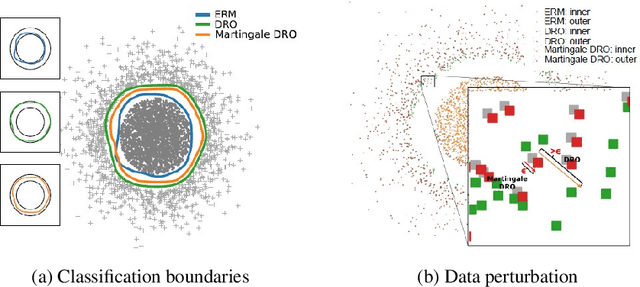Sirui Lin
Generative Learning for Simulation of Vehicle Faults
Jul 30, 2024Abstract:We develop a novel generative model to simulate vehicle health and forecast faults, conditioned on practical operational considerations. The model, trained on data from the US Army's Predictive Logistics program, aims to support predictive maintenance. It forecasts faults far enough in advance to execute a maintenance intervention before a breakdown occurs. The model incorporates real-world factors that affect vehicle health. It also allows us to understand the vehicle's condition by analyzing operating data, and characterizing each vehicle into discrete states. Importantly, the model predicts the time to first fault with high accuracy. We compare its performance to other models and demonstrate its successful training.
Generative Learning for Simulation of US Army Vehicle Faults
Jul 24, 2024Abstract:We develop a novel generative model to simulate vehicle health and forecast faults, conditioned on practical operational considerations. The model, trained on data from the US Army's Predictive Logistics program, aims to support predictive maintenance. It forecasts faults far enough in advance to execute a maintenance intervention before a breakdown occurs. The model incorporates real-world factors that affect vehicle health. It also allows us to understand the vehicle's condition by analyzing operating data, and characterizing each vehicle into discrete states. Importantly, the model predicts the time to first fault with high accuracy. We compare its performance to other models and demonstrate its successful training.
Tikhonov Regularization is Optimal Transport Robust under Martingale Constraints
Oct 04, 2022



Abstract:Distributionally robust optimization has been shown to offer a principled way to regularize learning models. In this paper, we find that Tikhonov regularization is distributionally robust in an optimal transport sense (i.e., if an adversary chooses distributions in a suitable optimal transport neighborhood of the empirical measure), provided that suitable martingale constraints are also imposed. Further, we introduce a relaxation of the martingale constraints which not only provides a unified viewpoint to a class of existing robust methods but also leads to new regularization tools. To realize these novel tools, tractable computational algorithms are proposed. As a byproduct, the strong duality theorem proved in this paper can be potentially applied to other problems of independent interest.
 Add to Chrome
Add to Chrome Add to Firefox
Add to Firefox Add to Edge
Add to Edge